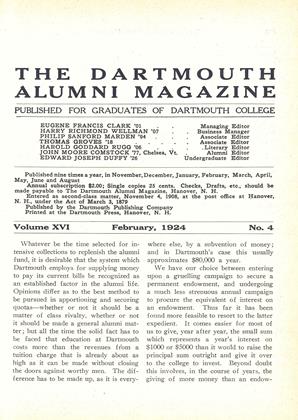George M. Janes, Ph.D. '01, Chicago, A. C. McClurg & Co.
This little book (one of the National Social Science Series) contains a useful summary of the growth, organization and policies of the labor movement in America. It is characterized by brevity, clarity and sanity. In a duodecimo volume of but one hundred and forty pages, it is manifestly difficult to add greatly if at all to the sum total of knowledge on this subject; but this it not its purpose. The author's object, which it seems to the reviewer has been successfully achieved, we may permit him to state for himself: "The aim of this little book is to present as clearly as possible within the space allowed the salient features of American trade-unionism. Like all social movements which excite the hopes and fears of men, trade-unionism has more often been the object of passionate denunciation or defense than of scientific inquiry. But whether we like it or not the organized labor movement in some form has evidently, come to stay. There are no labor problems in a backward country like Turkey, where repression and not expression is the rule. The trade-union movement is at least an expression of life and a desire for something better on the part of the laborer, and that is one reason among others why it is found in advanced industrial countries like England and the United States. Differences of opinion concerning most subjects are usually the result of ignorance, and definite knowledge concerning any subject is at least the beginning of wisdom."
The eleven chapters into which the book is divided deal with the following topics: The Nature of Trade Unionism, Organization and Government, The Shingle Weavers, The American Federation of Labor, The Industrial Workers of the World, Collective Bargaining, Control of Strikes, Conciliation and Arbitration, The Trend of Development, The Union Shop, Union Policies.
To those desiring the briefest possible comprehensive account of Trade Unionism, this work is certain to prove useful.
 View Full Issue
View Full Issue
More From This Issue
-
 Article
ArticleWhatever be the time selected
February 1924 -
 Article
ArticleDARTMOUTH IN THE SEVENTIES
February 1924 By Samuel L. Powers '74 -
 Article
ArticleDARTMOUTH JOTTINGS OF A SOMEWHAT DESULTORY READER
February 1924 By Fred Lewis Pattee '88 -
 Class Notes
Class Notes$1000 REWARD PEARL NECKLACE
February 1924 -
 Article
ArticleHARRY HARMON BLUNT
February 1924 By Thomas Dreier -
 Article
ArticleFROM THE UNDERGRADUATE CHAIR
February 1924
Books
-
 Books
BooksALUMNI PUBLICATIONS
April 1920 -
 Books
BooksPREPARATION FOR MARRIAGE
January 1937 By Andrew G. Truxal -
 BOOKS
BOOKSThe Wright Stuff
MARCH | APRIL 2017 By CHRISTOPHER S. WREN ’57 -
 Books
BooksA FIELD GUIDE TO THE BUTTERFLIES OF NORTH AMERICA, EAST OF THE
June 1951 By J. H. Gerould '90 -
 Books
BooksUNDERSTANDING MAN'S SOCIAL BEHAVIOR,
June 1948 By Ross Stagner -
 Books
BooksSAIL IT FLAT: THE SUNFISH RACING PRIMER.
MAY 1972 By WILLIAM J. HURST

